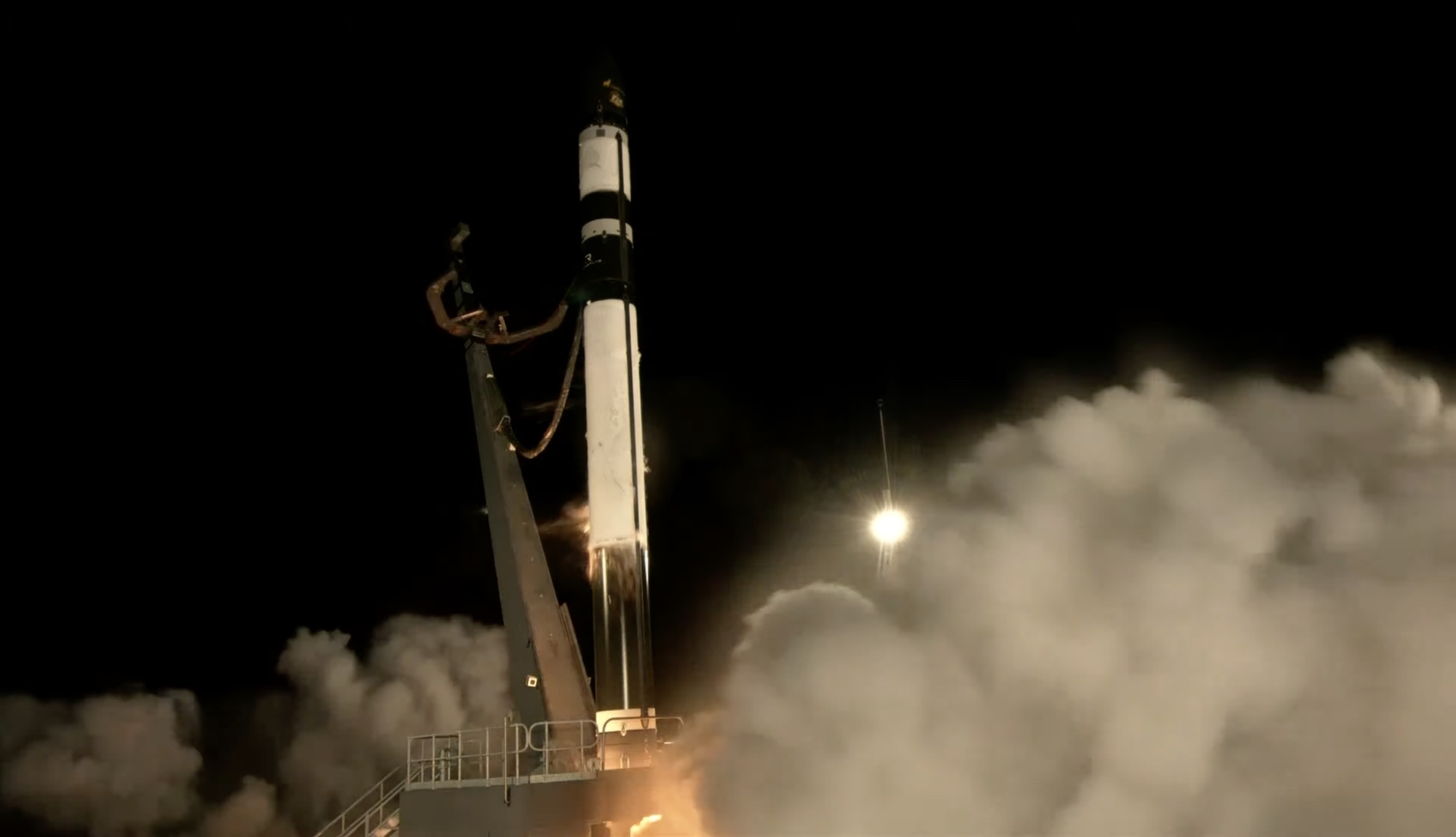WASHINGTON — A Rocket Lab Electron failed during a launch of Capella Space radar imaging satellite Sept. 19.
The Electron lifted off at 2:55 a.m. Eastern from Launch Complex 1 in New Zealand after a delay of about 20 minutes because of space weather conditions. The liftoff and ascent of the first stage appeared to go as expected, with “nominal” calls by controllers up until stage separation.
Live video from the second stage, though, was lost right after separation, when the single Rutherford engine ignited. Telemetry displayed on the webcast for several seconds after stage separation showed the vehicle’s velocity decreasing, suggesting the engine had malfunctioned in some way.
“All stations, we have experienced an anomaly,” the launch director said about 45 seconds after stage separation. Rocket Lab soon concluded the webcast without providing any additional information, but did acknowledge that the mission was a failure.
The failure is the third for the Electron in a little more than three years, with the previous two involving problems with the upper stage. An Electron in July 2020 failed to reach orbit when the upper-stage engine shut down prematurely, which the company blamed on a faulty electrical connection. Another Electron launch in May 2021 failed when the upper-stage engine shut down seconds after ignition. Rocket Lab said that failure was caused by problems with an igniter that corrupted signals used for the stage’s thrust vector control system, causing the engine to shut down.
The failure raises new questions about the reliability of the rocket and the company’s ability to increase the vehicle’s launch rate. Rocket Lab had projected flying 15 Electron missions this year, including flights of a suborbital version of the rocket called HASTE. This was the ninth Electron launch of the year and the 41st overall, making the company the leader among Western operators of small launch vehicles.
The payload on the rocket was the second Acadia synthetic aperture radar (SAR) imaging satellite developed by Capella Space. The previous Electron launch Aug. 23 launched the first Acadia satellite, part of a four-launch contract between Rocket Lab and Capella.
That first Acadia satellite is now in commercial operations, said Payam Banazadeh, chief executive of Capella, during a panel discussion at World Satellite Business Week Sept. 15. “The factory is full of these Acadia satellites,” he said, with more planned to launch in the coming quarters, including with Rocket Lab.
Acadia satellites are larger than previous generations, with a mass of about 150 kilograms, which he said was based on the decreasing cost and increasing availability of launch. “At some point it didn’t really make sense to be as small,” he said, increasing the size of the satellites to improve their performance. “The quality of the data mattered far more than launching more satellites, at least for the customers that we are targeting.”
